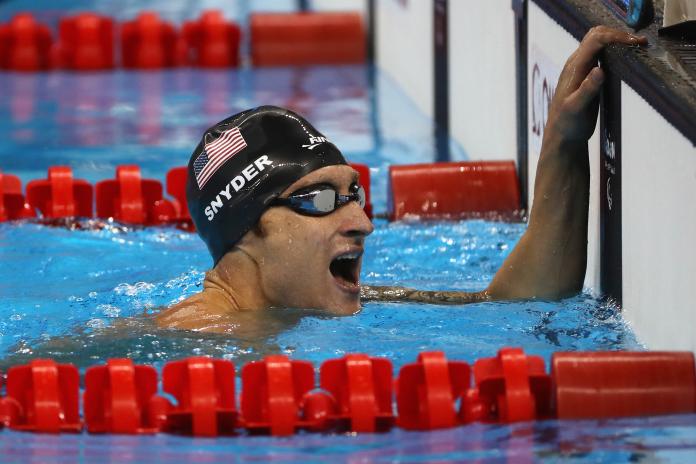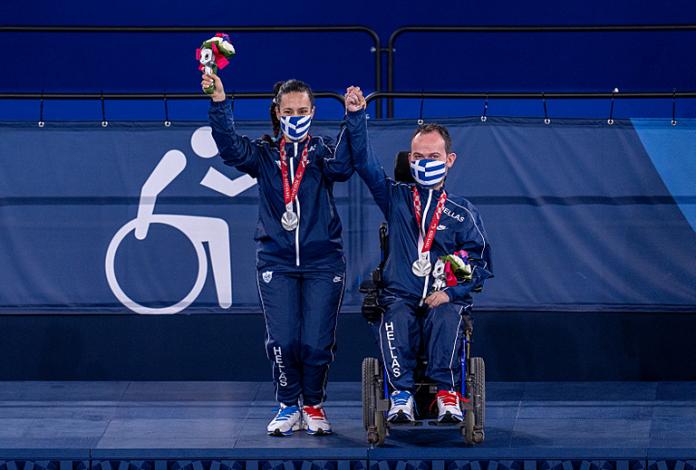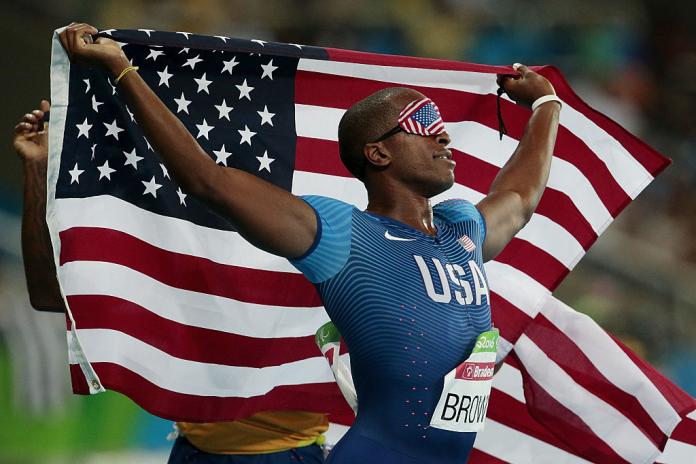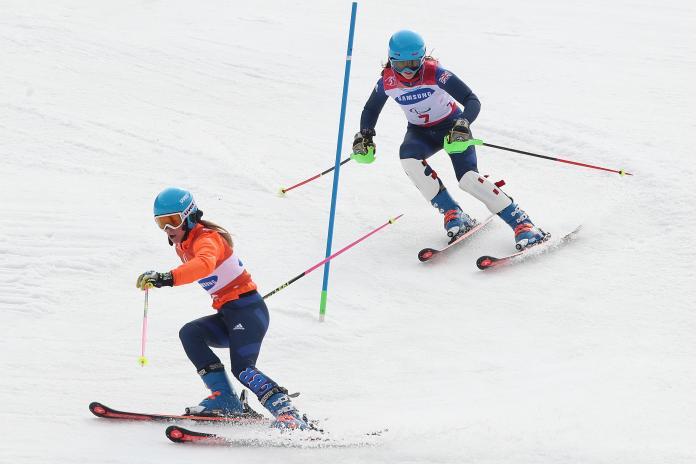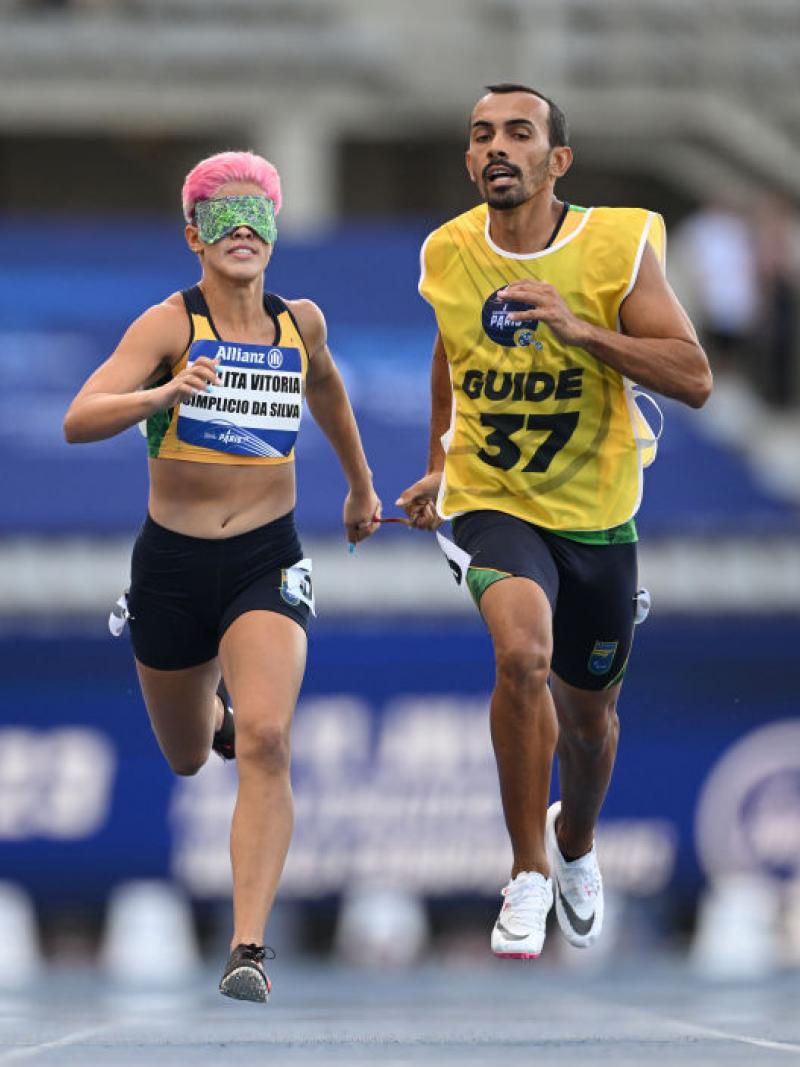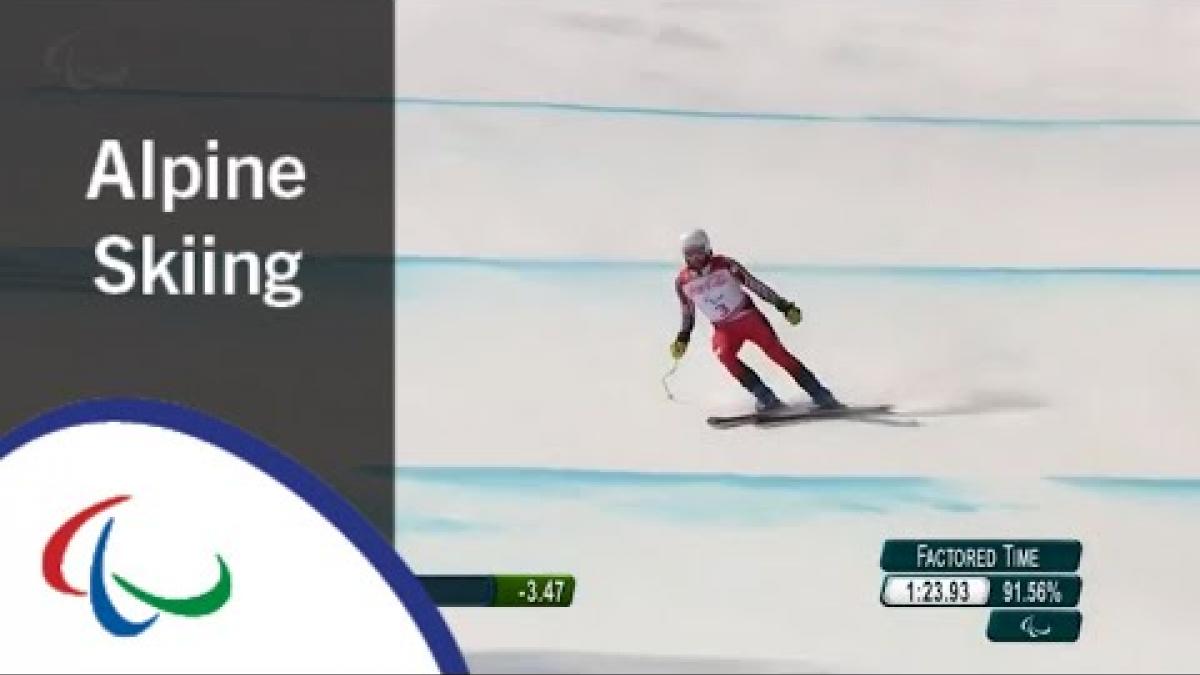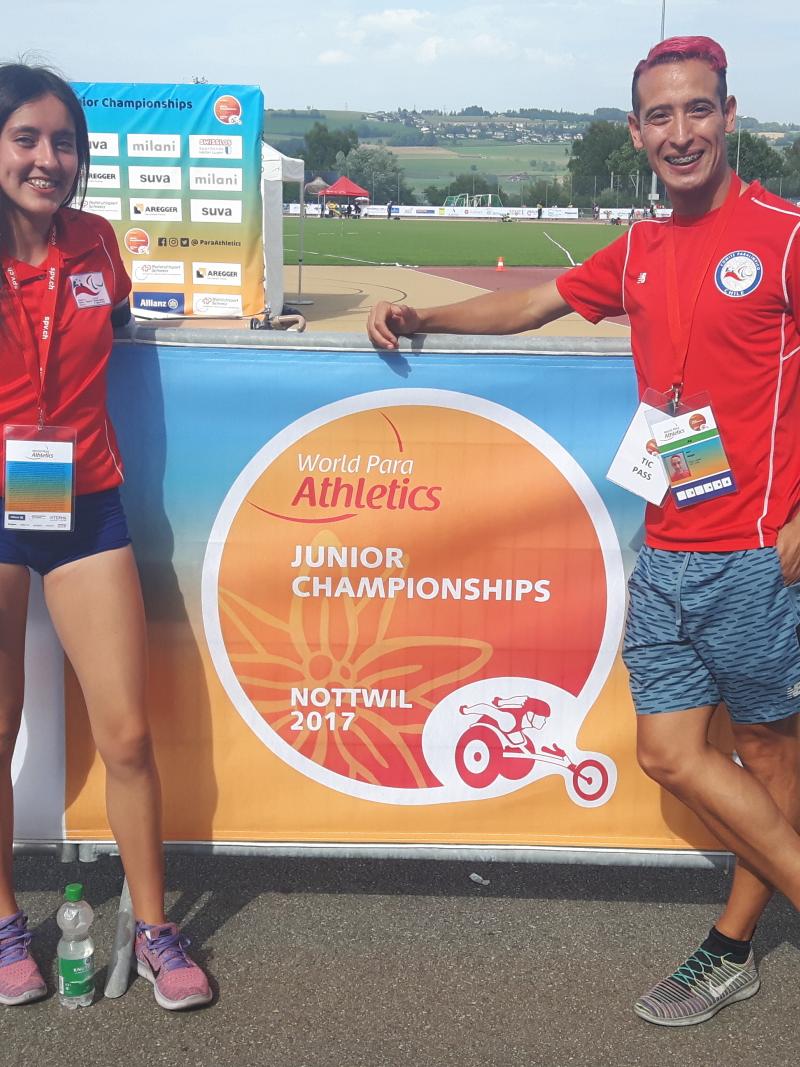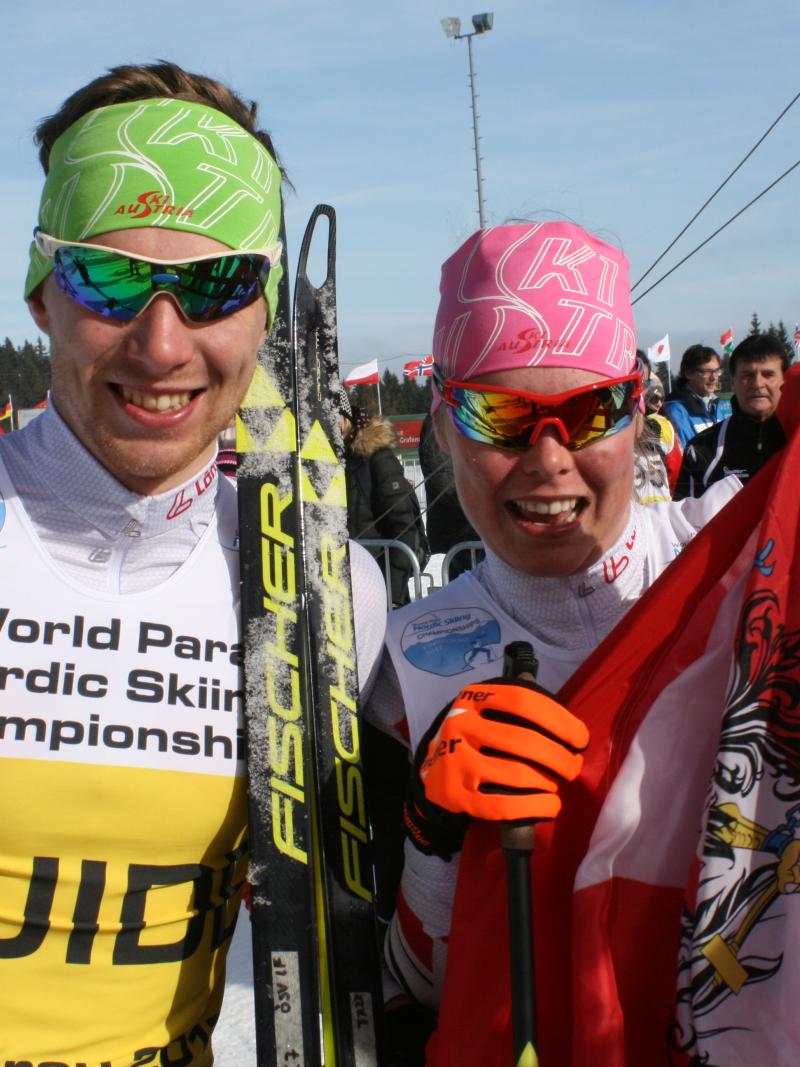Guides and assistants, the unsung heroes of Para sports
Former and current athletes and even family members had become guides and assistants for Para athletes, playing crucial roles in their success, both in summer or winter sports 07 Dec 2023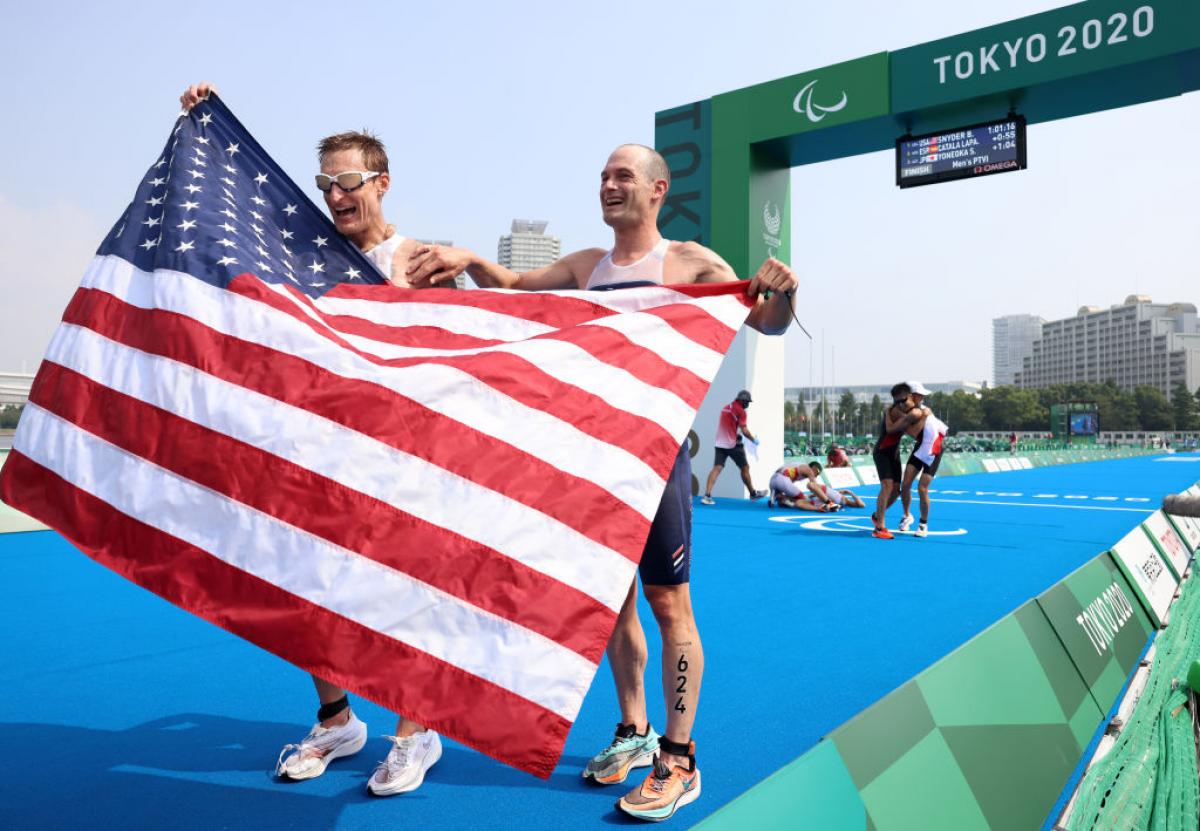
The unsung heros within Para Sport. Those are the guides and assistants, who play a crucial role in enabling impaired athletes to compete at the highest level.
At the London 2012 Paralympic Games, they stepped out of the shadows and their contribution started to get rewarded with medals. The podium is even shared now. And well deserved, because they train, think, and live as athletes too.
From the running track to the swimming pool, via the velodrome and the ski slopes, and not forgetting the boccia sport hall, there is an army out there whose aim is to help those with visual impairments or motor-skill challenges achieve their goals and dreams in the sports world.
Time-efficiency and safeguarding
It could be acting as a ‘tapper’ in swimming so that the swimmer knows it is time to turn, just like six-time gold medallist Brad Snyder, who used his coach, Brian Loeffler, as his tapper.
“I think it’s really important to have a tapper you trust because you’re swimming at a fast rate into the wall,” said Loeffler speaking to paralympic.org.
“You have to just focus on your swimmer. Don’t look at the stands.”
Snyder has since turned to Para triathlon and needed a guide to steer him toward Tokyo 2020. His choice was an expert but as the countdown continued, a very special relationship was born.
Gregory Billington finished 37th at the Rio 2016 Olympic Games and turned out to be the perfect sidekick for him, because they went straight to win the gold medal.
“Having stood on the podium ‘z’ times by myself, I can tell you unequivocally it was by far my favourite podium to stand up there with Greg and share that moment with him after doing it together,” said Snyder.
The now Para triathlete even added that compromise between the two of them is a major component of the relationship. “The thing about that last bit of the run course, doing it with Greg, he's right there and I know that I have to push through because I don't want to disappoint him.
“So the team dynamic is just such an awesome and rewarding part of triathlon. What’s been amazing is that Greg has not only stepped in as a guide, but he's helped me out as a mentor, as a coach and now as a friend”, said the 39-year-old athlete.
“We've been able to train together stride for stride, stroke for stroke. And we've really bonded as friends, as teammates and as competitors.”
Impeccable understanding
The choice of sport assistant at boccia often includes close friends and family. Grigoris Polychronidis, silver medallist in the BC3 category at Tokyo 2020, is helped by his wife, Katerina. She took over from Grig’s father, Daniel, who also used to make the athlete’s ramps with his name on them.
“Yes, this is true. I’m proud and happy to have the luck that my father made all this equipment,” he said on the Winning Mindset podcast.
“Now I train every day and compete with my wife, Katerina Polychronidi, who is my sport assistant. We have great chemistry between us and we use an effective communication code”, he revealed about their relationship.
“For example, I can say a word and she must understand 10 actions because I have my mind inside the game and I can’t lose time explaining.
“Usually, the person is very close to the athlete. With Katerina it is something magnificent, something wonderful and the benefit of my game has made it faster.”
Just like a three-legged race
David Brown, the first blind athlete to break the 11-second barrier, first linked up with guide Jerome Avery in 2014. They were close friends and called themselves Team Bravery.
The best-made plans for Tokyo 2020 were shattered because of an injury to Avery and, suddenly, Brown needed to find a new guide as quickly as possible.
His first choice did not progress and Brown, who described running with a guide as ‘like a three-legged race’, has new plans for Paris 2024, where he hopes to run the 400m.
Again it will be a working relationship with a guide. Business first.
“We ended up bringing in Je’Von Hutchison as a guide, who has been a huge benefit,” Brown said to NBC.
“He was an 800m runner and a very good and fast 400m runner. More importantly, he understands training. I’m learning how to pace better and he’s learning how to start faster.”
Trust, the key to a successful guide
The key word is “trust”. From now on, the T Word. Five letters that sum up the relationship between a competitor and a guide or assistant. Visually-impaired British skier Menna Fitzpatrick puts trust at the top of her wish list.
“Of course, you have to look at their ability to do the job - whether they've got the right skills and whether they will be fast enough,” she said. “And you've got to look at how their personality would fit in.
“But trust is a key part. If you don't have the trust in the guide, then you won't have the skill and the speed. They also have to trust that I am going to follow their instructions,” she told the BBC about these unsung heroes.
As we move towards Paris 2024 and Milano-Cortina 2026, the Summer and Winter Paralympics, respectively, the roles of these invaluable guides will be more important than ever.





